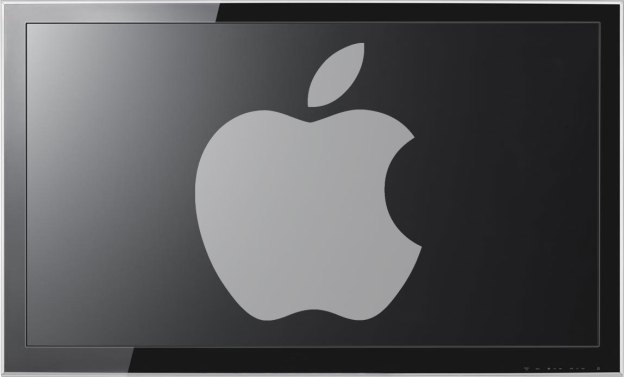
I’m kind of fascinated with the coverage of Steve Jobs’ passing. I’ll watch knowledgeable people argue that Steve was unique, crazy smart, and connected to every part of Apple including the invention of its most successful products: the iPod, iPad, and iPhone. These same people will then argue that Apple will largely be unchanged with his passing. To me, that’s like arguing a diamond ring will be unchanged after the diamond is removed. However, Apple will be what it will be. Rather than talking about that anymore, let’s talk about the TV Apple is rumored to be working on.
I’ve now heard from a number of reasonably reliable sources that Apple has picked up panels and technology that would imply it is working on its own TV. Initially, thinking back at HP and Pioneer’s failed TV attempts, I thought this was crazy. Now, well I still think this is crazy, but let’s talk how Apple might be successful.
Apple’s successes
Apple’s biggest successes have been with products people carry in unsaturated markets. When the iPod came out the MP3 player market was tiny, largely because most of the products were, well, junk. Apple blew up that market and took the majority of share by being the first to sell an end-to-end solution, and by blocking HP’s entry (HP had a similar solution, but I won’t tell that story again here).
With the iPhone, smartphones were a small fraction of the market, and it was dominated by the BlackBerry, a business-focused product that required a specialized server to work properly. Microsoft was in the market, but its device was saddled with a browser that was an embarrassment, and a user interface that, well, looked a lot like Windows. Apple entered with a better end-to-end solution, app stores, and a vastly easier to use and more capable offering. Again, Apple exploded the market and took a large chunk of it. The only reason Apple doesn’t continue to dominate is because the carriers don’t like the deals they have to cut with Apple to get its products, and so the majority have been pushing Android-based phones instead.
The iPad was more similar to the iPod in that it entered a tablet market dominated by Windows tablets, which were expensive, heavy, had poor battery life and a touch experience that sucked. Apple’s product was cheaper, lighter, had better battery life, and a better user experience. Again, Apple exploded the market and was the big beneficiary in it.
Apple’s success formula appears to be to take an underperforming market, fix the solution (not just the hardware), and reap the majority of the benefits.
The TV market
Now let’s look at the TV market. This is a saturated market. People don’t just have one, but often they have several TVs in the home and TVs have a useful life of around eight years. The market has commoditized around current flat-screen technology, and both smart TVs and 3D TVs have been struggling to penetrate.
But, in a way, this is similar to the MP3 market, which had underneath it products like the Sony Walkman which played tapes or CDs.
People are watching more programing on demand and getting more and more off the Web. This could be the equivalent of the then-new MP3 market, suggesting a similar approach could work here. In other words, doing for the smart TV what Apple did with the iPod and iPad. Adding programming, apps (likely mostly games), and an unmatched user experience. Like the iPad, Apple they could then subsidize (take a slimmer margin on) the TV and still both provide a better experience and maintain high margins. The money would come from licensing accessories, or skimming a portion of the profit on sold apps and content, which is mostly pure profit.
Don’t forget about Starbucks
Given the high risk and lack of success for Apple TV (which is arguably the best in its class today) I still am doubtful Apple will take this risk. But I also know Steve Jobs hated TV, and he is gone now, so it is far more likely than it was while he was still there.
One final example is Starbucks. Before Starbucks, coffee was sold by pretty much everyone, and from anywhere from a quarter to seventy five cents. It was the definition of a saturated market. Starbucks entered with a European-inspired product and connected it to status. As much as it pains me, I have a Starbucks coffee most mornings (I didn’t even like coffee before this). However there is one thing all of these successes have in common: They were products you carried and people saw you with. They gave personal status. Things that go into the home are seen by far fewer people, and don’t have the same status associated with them. Yes color TVs and flat screens, when they first came out, were considered a status symbols but they don’t have the impact of an iPhone or iPad.
I think if Apple can find a way to address this and still do for the TV what they did for the iPod and iPad, it could actually be an even bigger success. Given the risk, I still doubt Apple will do it, but I don’t doubt that it could be done. We’ll see, because I likely would have said the same thing about the iPad, given the lack of success for the Windows tablet. Steve Jobs’ Apple was defined by a little bit of crazy, crazy smart, and crazy lucky. We’ll see if the new Apple has a little of the right crazy in it.
Editors' Recommendations
- How much is Apple TV+?
- What we want to see from the next Apple TV 4K
- Let’s discuss an Apple TV 4K with a camera
- Best Apple deals: Save on AirPods, Apple Watch, iPad, MacBook
- YouTube TV just got even better on iPhones and iPads


